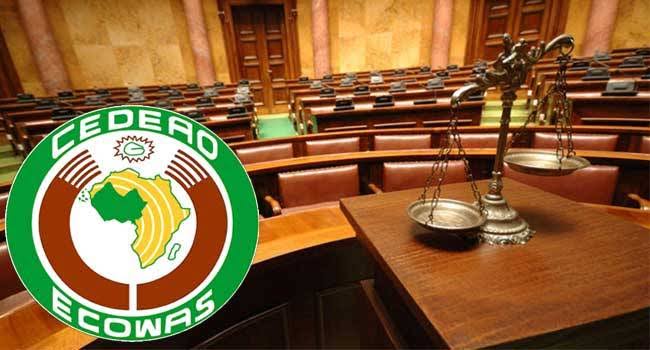BREAKING: ECOWAS Court To Consolidate Suits On Nigeria’s Twitter Ban

The Community Court of the Economic Community of West African States has set July 9, 2021, as the deadline for deciding on the consolidation of all applications filed with the court regarding Nigeria’s Twitter ban.
This was declared by the ECOWAS Court in a virtual court session held via zoom on Tuesday.
Two applications against the Federal Government over the Twitter ban were on the day’s cause list.
One of them was the ECW/CCJ/APP/23/21 application filed by the Registered Trustees of the Socio-Economic Rights and Accountability Project against the Federal Government.
The other was the ECW/CCJ/APP/29/21 application filed by the Media Rights Agenda and eight others against the Federal Government on the same problem.
Abdullahi Abubakar, a lawyer for the Federal Government, informed the court that he has filed a request to consolidate all four applications on the Twitter ban before the court.
Exposed!! Popular Abuja doctor revealed how men can naturally and permanently cure poor erection, quick ejaculation, small and shameful manhood without side effects. Even if you are hypertensive or diabetic . Stop the use of hard drugs for sex!! It kills!
Abubakar requested consent from the court to consolidate the hearings of the cases presently before the court and any orders that the court may judge appropriate in the circumstances in his move on notice dated July 5, 2021.
SERAP’s Counsel, Femi Falana SAN, did not raise any objections to the application.
The application to combine, according to Falana, will “allow the court to provide a single ruling in the instances that were comparable in origin and character.”
Mojirayo Ogunlaya, Counsel to Media Rights Agenda, did not oppose to the consolidation request.
The parties in the other two cases, ECW/CCJ/APP/24/21 and ECW/CCJ/APP/26/21, which asked to be consolidated, were not in court, according to the ECOWAS Court.
As a result, the court stated that it cannot make a consolidation order without first hearing from them.
The court further noted that while the petitioners in each of the four applications were unique, the respondents were all the same.
A lawyer, I. C. Uzoma, also sought permission from the court to intervene as an amicus curiae in the suit brought by SERAP, and to move his motion because the parties in the suit he was interested in were in court.




